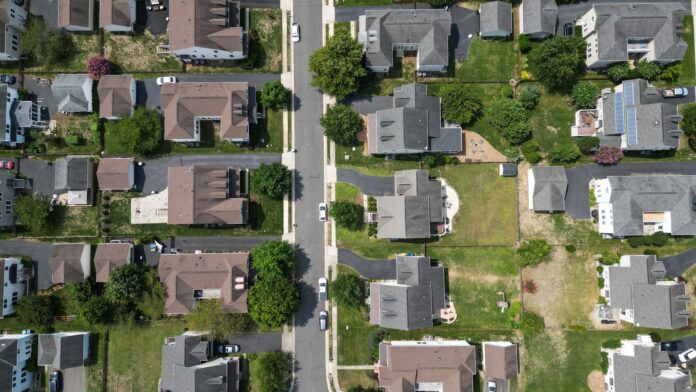A completed planned development is seen on August 14, 2024 in Ashburn, Virginia.
Andrew Caballero Reynolds | AFP | Getty Images
Mortgage demand fell again last week even though mortgage rates remained unchanged.
According to the Mortgage Bankers Association's seasonally adjusted index, total mortgage application volume fell 6.7% from the previous week, reaching its lowest level since July.
The average contract interest rate for 30-year fixed-rate mortgages with conforming loan balances ($766,550 or less) remained unchanged at 6.52%, with points for loans with a 20% down payment decreasing to 0.64 from 0.65 (including the origination fee). .
Refinance demand continued to lead the way, falling 8% for the week. However, it was 90% higher than the same week a year ago. At this time last year, mortgage rates were 138 basis points higher, close to 8%.
The number of applications for a mortgage to buy a home was 5% lower this week and just 3% higher than the same week a year ago. Potential homebuyers now have a significantly better interest rate environment than they did a year ago, but home prices are now higher. Some real estate agents say buyers are also taking a wait-and-see approach ahead of next month's presidential election.
“Inventory for sale has begun to loosen and home price appreciation has slowed in some markets, which, combined with these lower prices, gives buyers more options,” said Joel Kan, an MBA economist, in a press release .
Mortgage rates rose sharply this week, with the average 30-year fixed rate rising 14 basis points on Monday to its highest level since July, according to a separate survey by Mortgage News Daily. They rose slightly again on Tuesday.
“The underlying market movement was not easily attributed to a single headline or economic report,” wrote Matthew Graham, COO of Mortgage News Daily. “The leading theories relate to changes in electoral odds and more esoteric aspects of how the bond market works.”
Correction: Refinance demand was 90% higher than the same week a year ago. In a previous version the status was incorrectly stated.
















